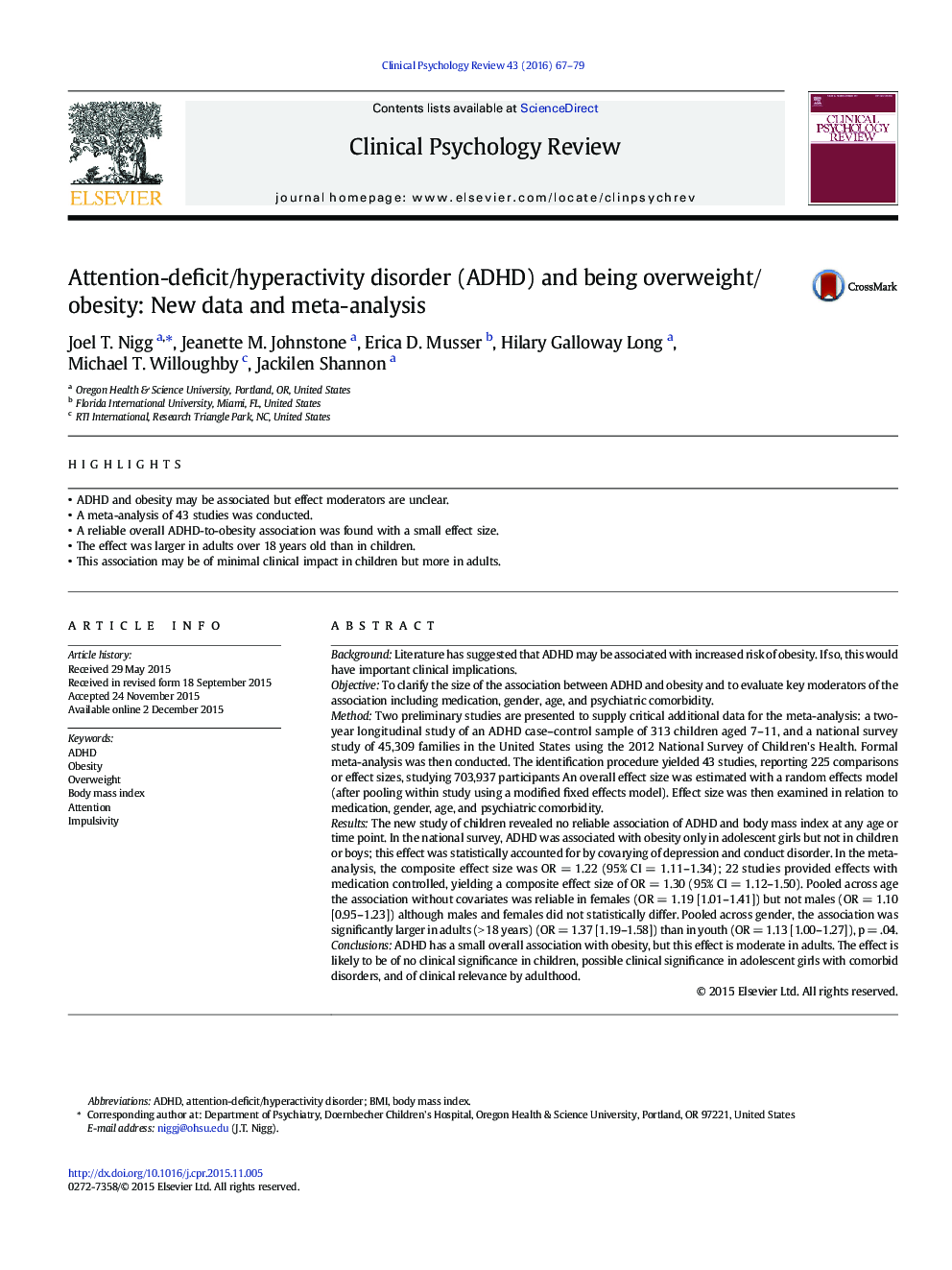| کد مقاله | کد نشریه | سال انتشار | مقاله انگلیسی | نسخه تمام متن |
|---|---|---|---|---|
| 903584 | 1472848 | 2016 | 13 صفحه PDF | دانلود رایگان |
• ADHD and obesity may be associated but effect moderators are unclear.
• A meta-analysis of 43 studies was conducted.
• A reliable overall ADHD-to-obesity association was found with a small effect size.
• The effect was larger in adults over 18 years old than in children.
• This association may be of minimal clinical impact in children but more in adults.
BackgroundLiterature has suggested that ADHD may be associated with increased risk of obesity. If so, this would have important clinical implications.ObjectiveTo clarify the size of the association between ADHD and obesity and to evaluate key moderators of the association including medication, gender, age, and psychiatric comorbidity.MethodTwo preliminary studies are presented to supply critical additional data for the meta-analysis: a two-year longitudinal study of an ADHD case–control sample of 313 children aged 7–11, and a national survey study of 45,309 families in the United States using the 2012 National Survey of Children's Health. Formal meta-analysis was then conducted. The identification procedure yielded 43 studies, reporting 225 comparisons or effect sizes, studying 703,937 participants An overall effect size was estimated with a random effects model (after pooling within study using a modified fixed effects model). Effect size was then examined in relation to medication, gender, age, and psychiatric comorbidity.ResultsThe new study of children revealed no reliable association of ADHD and body mass index at any age or time point. In the national survey, ADHD was associated with obesity only in adolescent girls but not in children or boys; this effect was statistically accounted for by covarying of depression and conduct disorder. In the meta-analysis, the composite effect size was OR = 1.22 (95% CI = 1.11–1.34); 22 studies provided effects with medication controlled, yielding a composite effect size of OR = 1.30 (95% CI = 1.12–1.50). Pooled across age the association without covariates was reliable in females (OR = 1.19 [1.01–1.41]) but not males (OR = 1.10 [0.95–1.23]) although males and females did not statistically differ. Pooled across gender, the association was significantly larger in adults (> 18 years) (OR = 1.37 [1.19–1.58]) than in youth (OR = 1.13 [1.00–1.27]), p = .04.ConclusionsADHD has a small overall association with obesity, but this effect is moderate in adults. The effect is likely to be of no clinical significance in children, possible clinical significance in adolescent girls with comorbid disorders, and of clinical relevance by adulthood.
Journal: Clinical Psychology Review - Volume 43, February 2016, Pages 67–79
